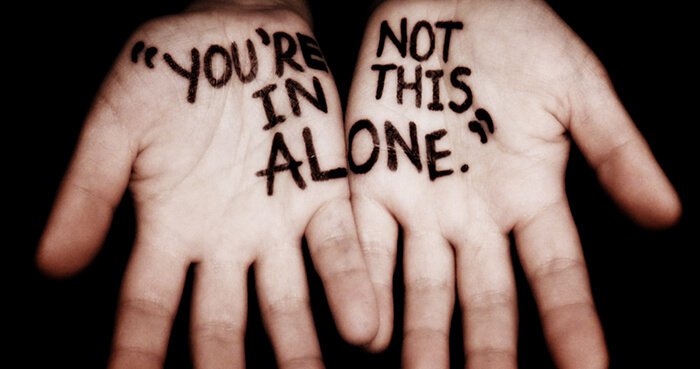Have you ever had one of those days
when you are just too tired to do anything?
Who hasn’t?!
This past year, especially since
March 2020, the COVID pandemic has thrown almost everyone’s life askew and many
of us are just plain, darn tired of the isolation, restrictions and of course
the news of so many deaths (more than half-a-million!). But how do you know if
your “tiredness” is more than just being TIRED?
Being tired can be a momentary
feeling, listlessness can be a simple as a common cold, or it can be a feeling
as if you are banging up against a brick wall with no hope of saving yourself.
You are the one that knows yourself best, but that does not mean that you are
the only one who can save yourself. Know the signs of burn out and depression.
Do you feel as if you have NOTHING
to look forward to, as if life has simply left you behind? Do you have
difficulty in finding any enjoyment in things you once looked forward to? Do
you find that you just don’t care anymore? Do you find it impossible to
complete the simple tasks you once were able to breeze through? And do you find
yourself using crutches like alcohol, drugs or behavior you wouldn’t normally
do? Is it difficult to sleep nights, or do you wake up feeling as if you haven’t
slept at all? Do you feel sad as well as fatigued?
All cases of severe tiredness and
fatigue, especially when you can answer YES to a number of the questions above,
should never be ignored. Medically there are a number of reasons why you may be
feeling so overtaxed and washed out — don’t ever let a doctor dismiss your
symptoms. There are conditions which can affect your blood, your bones, and
your mental well-being that MIGHT be affecting you, even your medications might
be causing a problem. A full examination and blood-workup might be recommended,
so speak to your doctor. (And from my own experience, if the doctor simply
laughs and says it’s all in your head without checking you out… get another
doctor!)
If no physical reasons are found,
there is the possibility that you are depressed AND THERE IS NO STIGMA TO
SEEKING HELP. While momentary disappointments may be easy to bounce back from,
severe depression isn’t. As mentioned above, this past year has been extremely
hard on a lot of us; in addition to the pandemic and the financial and social
problems it’s caused, our country also went through a very contentious
political battle, and social dissension, no matter what the cause, adds to
stress. It’s very important to talk and communicate with others, especially professionals,
and to make healthy lifestyle choices in your eating habits, exercise, and
sleep.
There are several support
help-lines that will allow you to speak with professional counselors as well as
support groups, group counseling and individual counseling services available.
Very often your insurance will help cover a portion of any expense you might
incur. You can also find tele-therapy with licensed doctors that charge only
minimal fees even if you don’t have insurance. Local hospitals and clinics can
help put you in touch with the resources you need to help you climb out of your
depression.
The following
resources are just a few and no endorsement is implied:
If you are a veteran, call the Veterans Crisis
Line at 800-273-TALK and press 1 (or chat online at www.VeteransCrisisLine.net).
If you or someone else is having thoughts of
suicide, call 911 or the Suicide Lifeline at 1-800-273-8255 (available 24/7).
Teen-to-Teen Peer counseling is
available at 877-YOUTHLINE (WWW.HOPELINE.COM)
AARP lists the Disaster Distress Helpline at 1-800-985-5990 or text TalkWithUs to 66746 for crisis counseling and support for anyone in the U.S. experiencing distress or other behavioral health concerns.






No comments:
Post a Comment